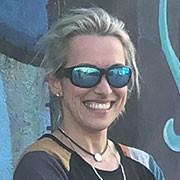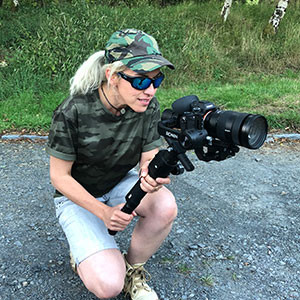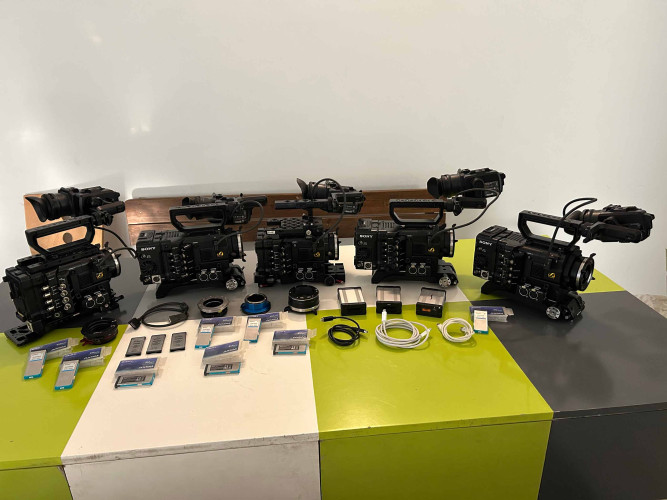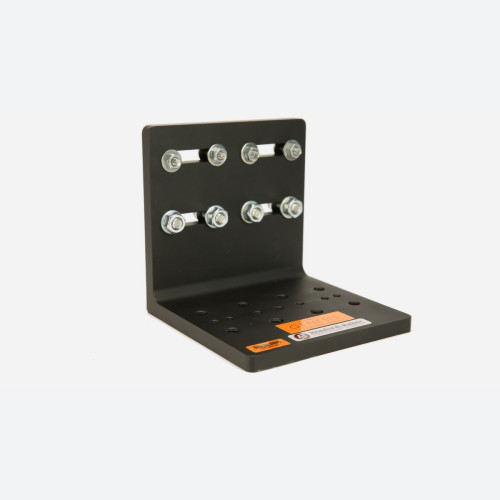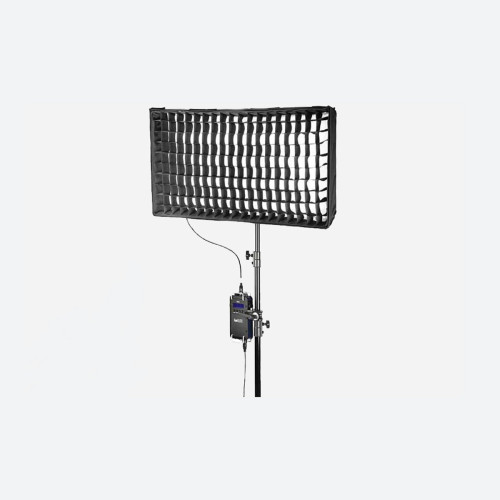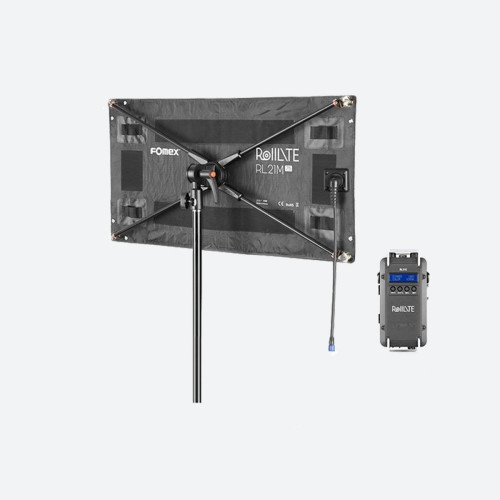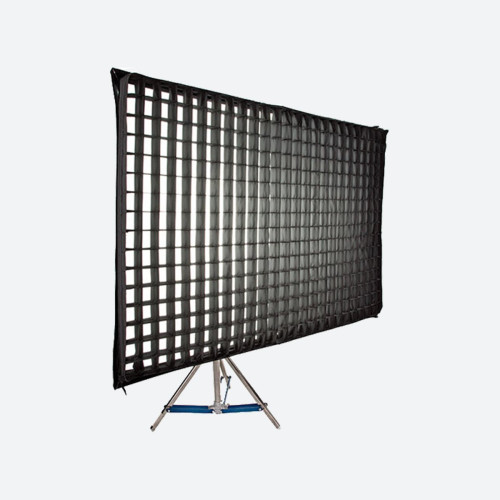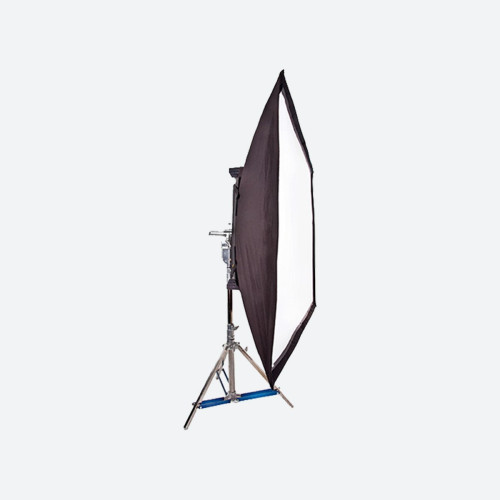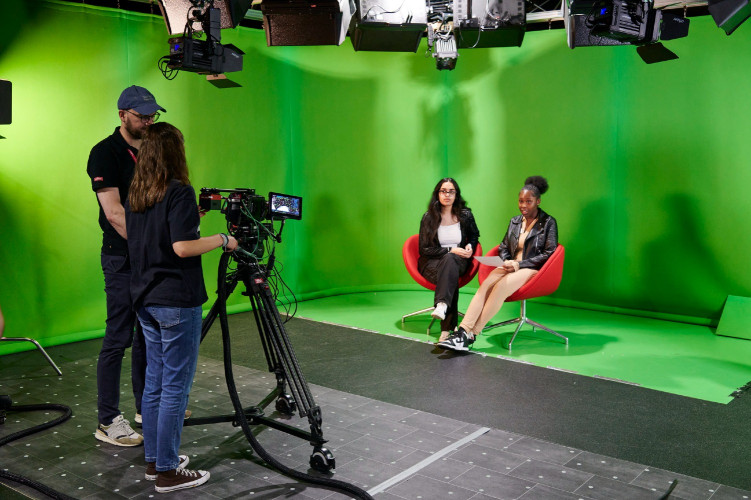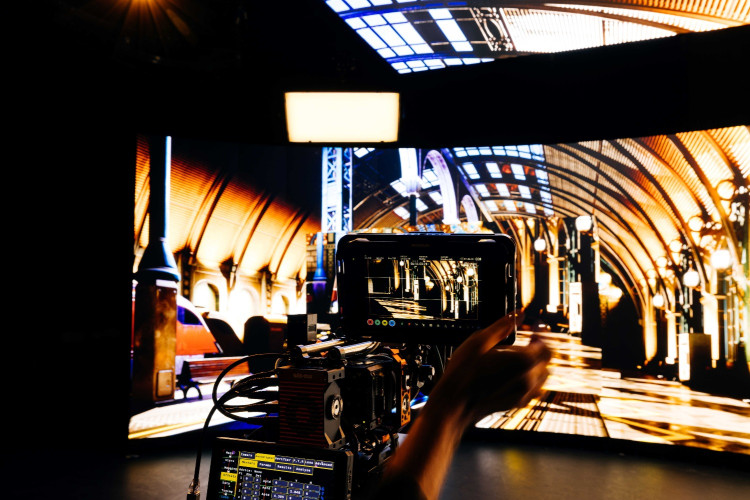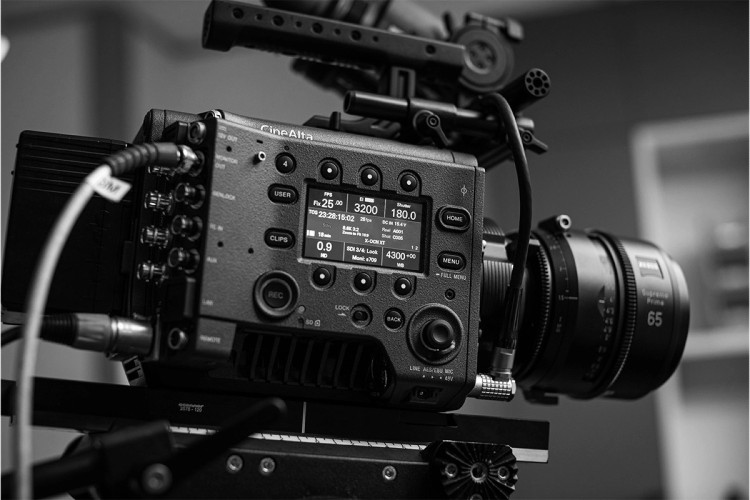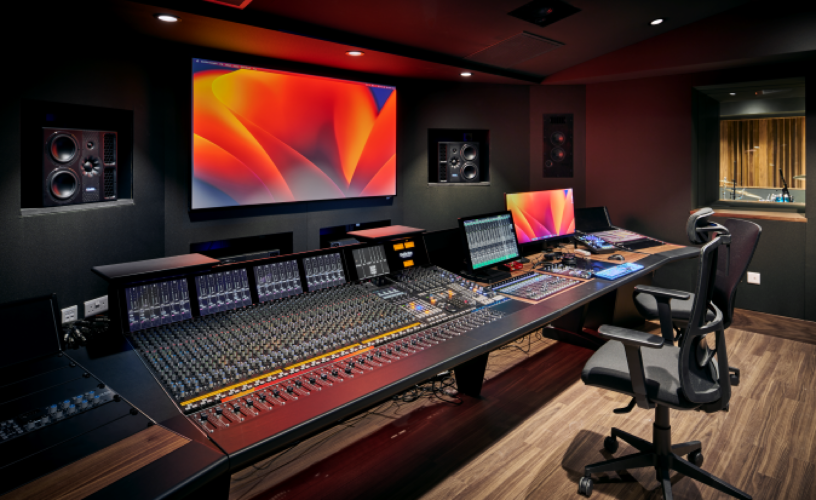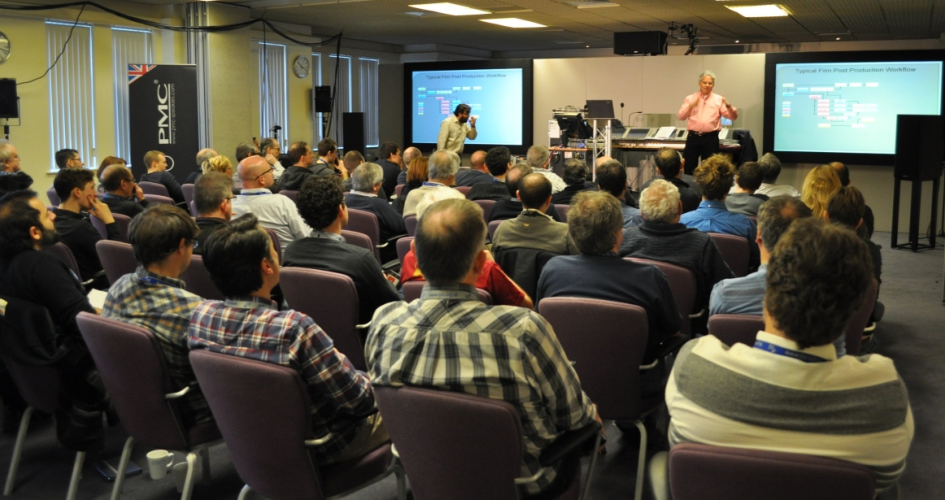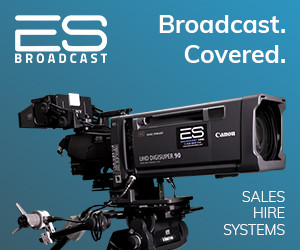We first met Ruth when we employed her as a student to help with our live studio at BVE in 2013. We were struck by her determination, passion and ‘I’ll do anything to help’ attitude. We became friends of Facebook and have since seen her career in the industry develop and unfold. We thought it was about time to catch up and share her inspiring story of where she is now, how she got there and the challenges she has faced along the way.
When did your love of filmmaking / video production begin?
I guess it started when I was a teenager. I used to record my favourite boy band’s music videos and interviews on VHS. I remember one day I had the idea of making a VT, basically mixing music videos, images and interviews, so I connected my TV to two VHS players, one recorder, one audio k7 player and, with the help of my sister and cousin, made my first VT of Backstreet Boys.
It was really fun except the fact that I burnt out my uncle’s VHS recorder. Later I saved money and bought my first camera, a Sony Hi8. I filmed almost all my family parties and gatherings and made a few experimental short films. I think it was then that I realised my passion for camera work.
Who inspired you to make the career choices you have made?
My grandma Avó Fernanda has always been an inspiration to me, she is 94 but still wears high heels and lipstick, her metabolic age must be 25. She is really a positive and strong woman who fought for professional positions that at the time where only given to men.
I always admired her character. Despite the fact that she has gone through war and lost almost everything, she never gave up. She even got her driving license for the first time when she was 65.
What university did you choose and why?
I studied at Ravensbourne University. I came across Ravensbourne when I was looking for universities and courses to study. I really liked the description of the course Digital Film Production, it had everything I wanted, mostly practical and covered almost all the areas in production, and the reviews of the university were also very good. I went there for an open day and had very positive feeling about the place, so I applied and got a place.
Did you feel you needed a degree to follow your dream?
At the time yes, but now I think it’s more important who you know in the industry.
What sort of work experiences did you do?
Oh, I did so many things. I worked as runner, stagehand, production assistant, sound recordist, camera assistant, logger, etc. The industry is small and hard to break in, so in order to network and know people I accepted almost any job I could get. Many unpaid.
For example I went for work experience as a cable basher for BAFTA Television Awards. I was told that it was unpaid but my name was going to be in the credits, and I accepted it. I worked from 8am to 11pm and in the end I didn’t have my name in the credits as promised and also lost my job at Asda, I had asked for the day off to be able to do this work but my manager refused, saying that if I don’t go to work she would fire me, which she did.
On the bright side though, I had many good work experiences. One of them was working at BVE for TV-Bay (now KitPlus of course) in 2013. I was the floor manager and I had the opportunity to operate jibs and cameras during the live studio shows and interviews at the exhibition.
Other exciting and fruitful work experience I had was working for Premier League at IMG. It was an internship for two weeks. The first week I assisted a few camera operators going to stadiums and training pitches, filming interviews and press conferences, I had the opportunity to operate one of the cameras for an interview with the goalkeeper David Ospina. The second week, I worked in the studio where I was allowed to operate cameras for some of the live shows.
Was it easy to find work, did you get paid, did you ever want to give up?
No, it wasn’t easy at all, specially the ones that you get paid for. I did lots of unpaid/low paid work, and a few times I felt extremely exploited and wanted to give up. Ironically, the last time I was serious about leaving everything, I got two calls on the same day, one to work as a camera assistant and the other, as a camera operator. So, I went for both interviews and got a full time job as a camera operator. I still do lots of freelance work on my days off or during my holidays, though.
Give me an idea of some of the struggles along the way to getting where you are now.
Every year there are so many people graduating from media courses, but the industry is very limited, so the competition is really fierce. I think the biggest challenge is financial. London is an expensive city to live in. I had to do other jobs to be able to pay the bills. I knew that I had to network with other media professionals and get more experience, so I had to accept many non/low paid work, and it was a kind of investment or gamble. After that, I think it was the psychological struggle.
There were times that I felt people were just taking advantage to get free labour, sometimes I was questioning my abilities, maybe my English was not good enough, maybe I was in the wrong direction, lots of maybes in my mind.
Another struggle, in my opinion, is being a woman working in this male dominated industry, particularly in technical areas of production. I felt at times people don’t take you very serious. It’s funny, I remembered once the director came to the room and looked at me and at a guy who was actually my trainee, and went straight to him to ask him his camera questions. I guess he naturally assumed that he must be the camera operator.
How can we get more women into the industry in both technical, creative and production environments?
I think first of all women should have more belief in themselves. It could be very motivating for women to see other women doing this kind of jobs. As I said before, the industry is still very male oriented, but to be fair you are beginning to see more women breaking through. I personally can see more women doing camera work, compared to last year. So there are some good signs and I think women should be given more chances.
Where do you see yourself in 5 years and 20 years time?
I really don’t know and frankly I don’t want to think about it anymore. I have always been surprised with life, every time I plan something long-term, life takes me to a completely different direction. I just want to be healthy, carry on what I’m doing and hopefully progress in my profession.



